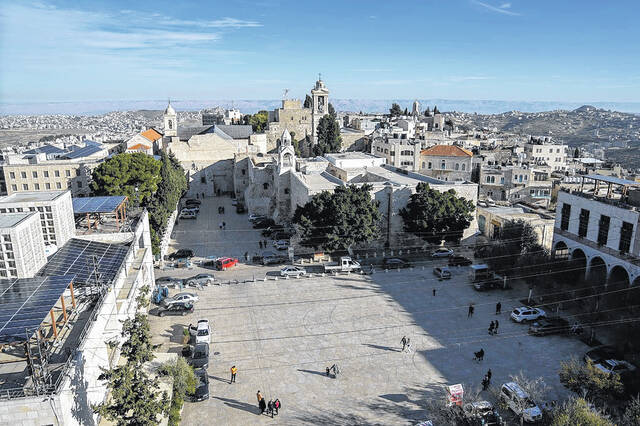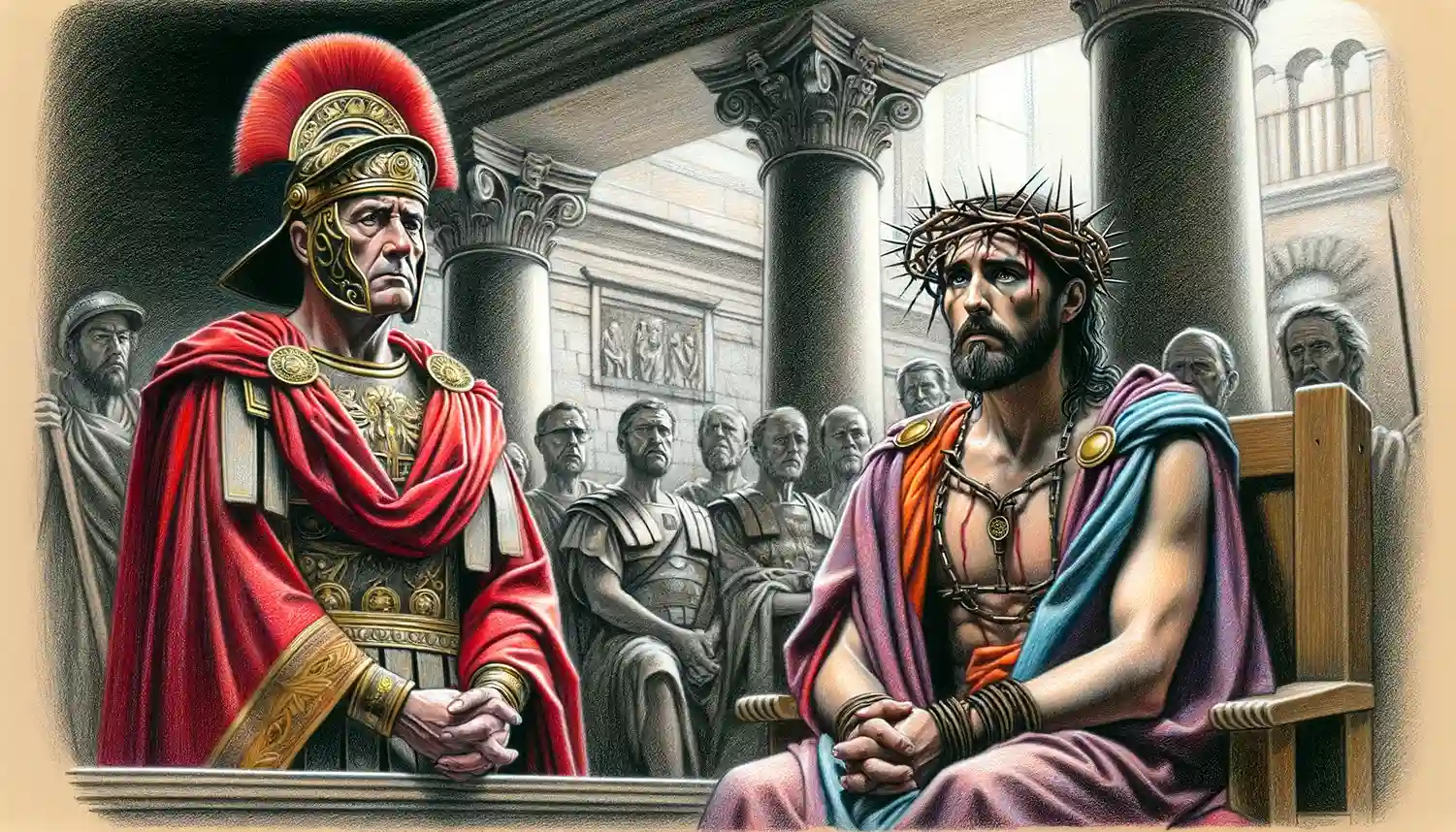Bethlehem, a small town in Judea, is renowned as the birthplace of Jesus Christ and King David, playing a crucial role in biblical history and Christian theology.
Pontius Pilate, the Roman governor of Judea, presided over the trial of Jesus and sentenced Him to crucifixion, a decision portrayed with reluctance in the Gospels, and symbolically washed his hands to show he was not responsible for Jesus’ death.
Simon the Zealot, one of the Twelve Apostles, is noted for his background as a possible member of the Jewish political movement opposing Roman rule, indicating a fervent zeal that he redirected towards spreading Jesus’ teachings after the Resurrection, embarking on missionary journeys to Egypt and Persia and ultimately being martyred, a testament to his deep commitment to the Christian faith and his diverse background enriching the early Christian community.
Thaddaeus, also known as Judas son of James, is a less prominent but significant apostle in the New Testament, distinguished from Judas Iscariot and known for his questioning of Jesus about His revelations, extensive missionary journeys across regions including Judea, Samaria, and Syria.




